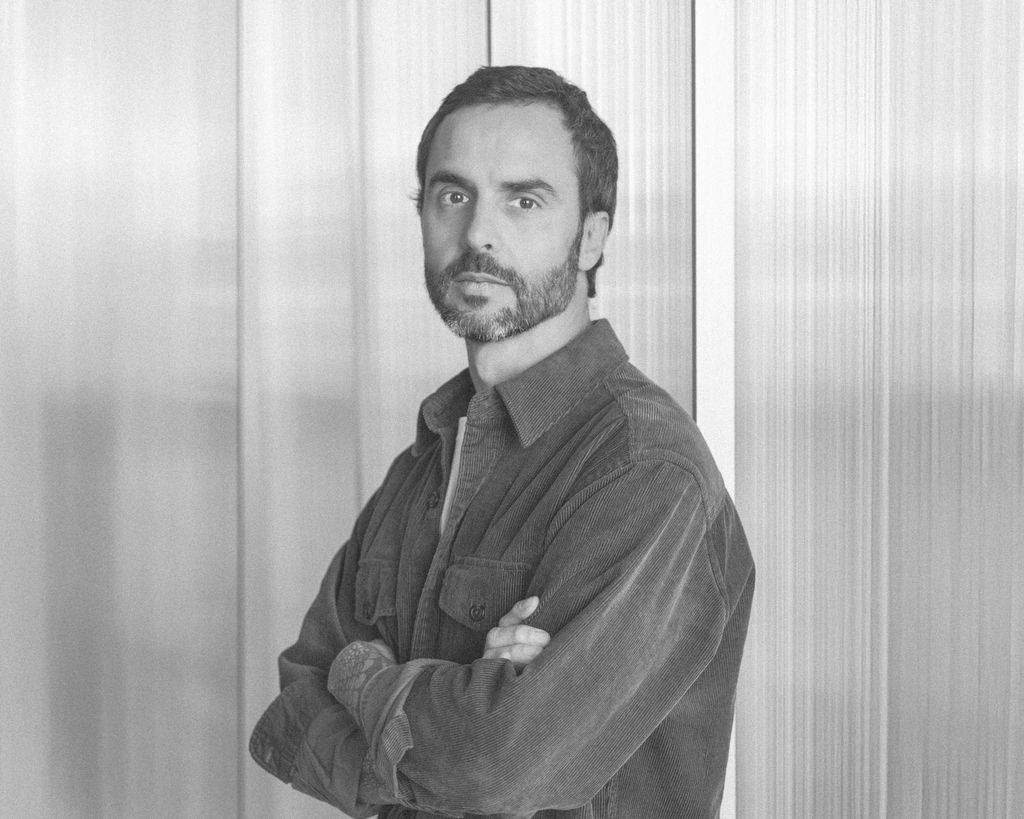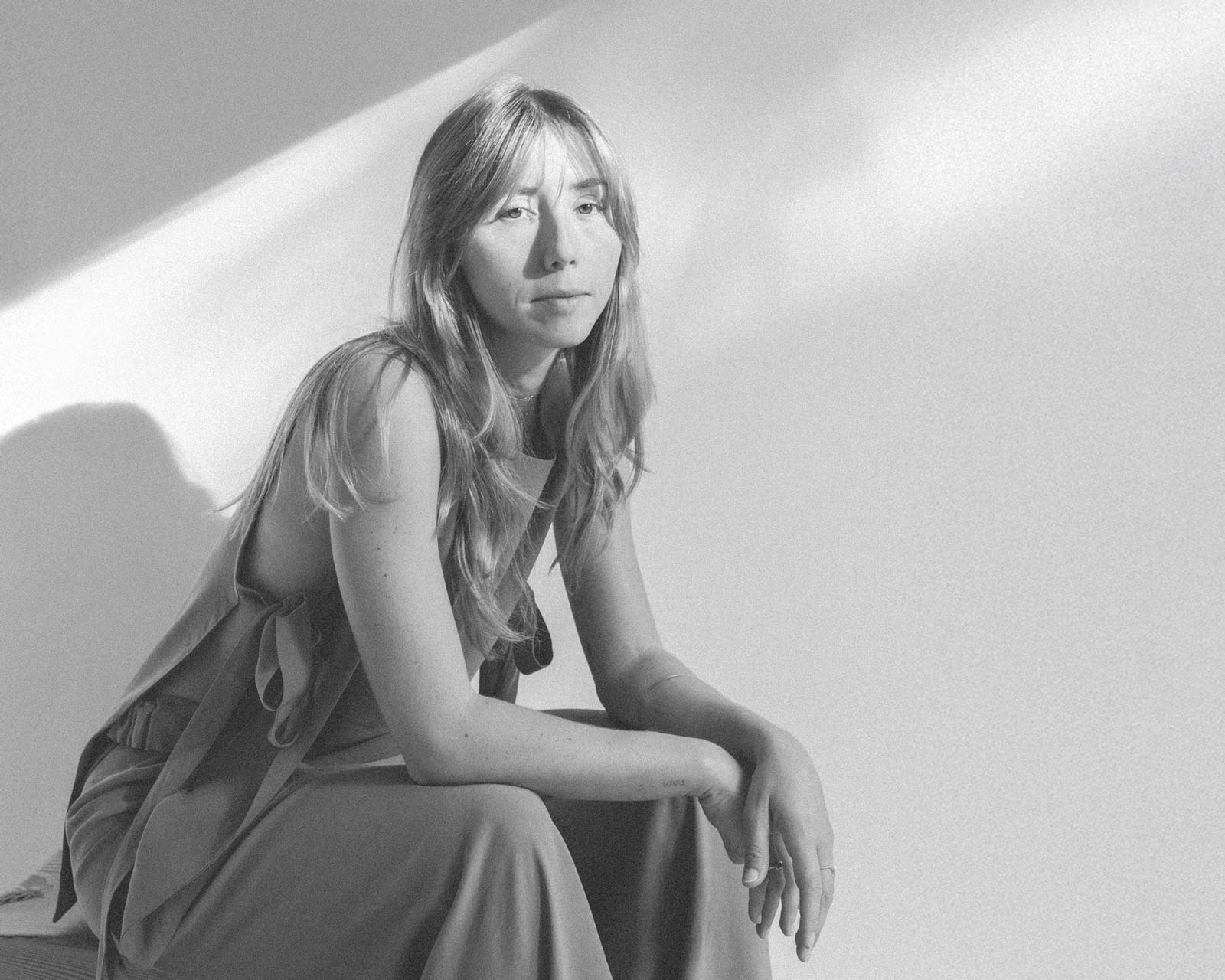For over 15 years, she has led top international brands, including Loro Piana, Officina Profumo-Farmaceutica di Santa Maria Novella, and Avignonesi, in the beauty, fashion, and luxury sectors. She blends vision, creativity, and a touch of boldness.
REMIDA meets ALICE TEDESCHI
It’s a bright Thursday morning on April 4th, and the Tuscan-Emilian-Bolognese axis comes to life with a conversation between Lisa, Alice, and Susanna.
L: Let’s start with the field we operate in, let’s simplify and call it “marketing and communication”. How does critical thinking move within this context, in your opinion?
A: Engaging in this type of conversation means diving into a world of great discomfort. Between people-pleasing and critical thinking, there are seven or eight different universes. In the communication industry, critical thinking starts with a fundamental task: understanding how to convey thoughts that might otherwise be perceived as aggressive. It’s about trying to read a situation out loud, fully aware that this reading will always be partial… and potentially wrong. The greatest challenge lies in striking a balance, approaching situations with care and understanding while still expressing one’s thoughts openly and honestly.
L: I like that. What does critical thinking mean to you?
INTERMISSION: Dear reader, you might be wondering… Great interview, but what does critical thinking have to do with us? Well, if you know Lisa, you know she’s a bit obsessed with it, and who better than Alice to back her up? A bit of context was necessary, we agree. But now, back to Alice’s answer.
A: Critical thinking is the attempt or the ability to pinpoint the foundational elements of a conversation, whether personal or professional. It’s about being able to encapsulate concepts relevant to the context within key areas of significance.
L: And can you find it? Where?
A: I see it more in the fields I’ve worked with most frequently: in analyzing a brand, content, or a campaign. Understanding the subject matter is fundamental: you don’t need to know everything to build a critical perspective. But it’s important to be attentive and open to discussion, even to have the courage to say, “This time, I don’t have an opinion”. I use it as a kind of cornucopia, where I can insert even distant objects and multiply them almost exponentially. It’s a lens that is never an end in itself.
L: Ladies and gentlemen, the million-dollar question. (Of course, dear audience, the prize is metaphorical… But if you’d like to join the conversation, write to us at supernova@remidastudio.com). In your opinion… Do brands have critical thinking?
A: Yes, if they are led by a visionary founder, though we have seen fewer and fewer of them in recent years. No, or too little, if they are driven by the need to please others. I understand that this need can translate into a satisfying ROI, but it’s a short-sighted choice. In these cases, the goal becomes “I need to be liked by everyone”, and there’s a kind of hunger: the desire to consume everything, to fill up, intoxicated by the feeling it brings. Thus, critical thinking is inevitably overshadowed by this all-consuming approach to customers. Why? Out of fear, out of a poor ability to manage anxieties. Some managers I’ve been fortunate enough to meet didn’t base their company-building strategy on short-term success. Their critical thinking wasn’t reduced to mere taste.
L: This reminds me of an interview Alessandro Borghi gave after the release of Supersex. He said: “We made this series to piss some people off”. Do you envision a future where critical thinking is more actively practiced? Could we create environments where “anger“ sparks brilliance? Or, to put it another way, where it contributes to forming more complex opinions infused with a greater dose of critical thinking?
A: I think critical thinking is mainly exercised in public spaces today, rather than in corporate ones where many dynamics push people to suppress it. And there’s no handbook, no guide that teaches how to develop this mindset. The real question then becomes: is critical thinking a talent or a skill? Can it be cultivated, or are you simply born with it? I don’t have a clear-cut answer. It’s probably true that part of it can be improved and developed, but I also believe that true mastery comes from being able to handle the unexpected beyond what any theoretical manual can teach.
S: Let me jump in. If critical thinking means expressing one’s views even if uncomfortable, even if it “pisses people off”… how does that align with so-called nonviolent communication or empathetic communication? Should we always be “kind”, or can critical thinking help us?
A: I don’t believe in the absence of conflict. Eliminating the darker tones because they’re “aggressive” or less bright isn’t the solution. That doesn’t mean acting violently or being disrespectful. The real risk is replacing freedom of expression with the freedom not to express oneself, cutting off parts of ourselves simply because we don’t know how to manage them. The point is to recognize that this tool exists and to understand when and how to use it. I stand by the use of kindness, but also by my own thoughts: I want the ability to express both my agreement and my dissent.
L: Okay, I have to bring in Linguistic Direction® here, it’s too relevant to ignore. How much do you think verbal awareness plays into all of this?
A: A great deal. Especially in written form, which demands an even greater ability to convey meaning through language.
Linguistic Direction®, to me, is an abstraction capable of igniting critical attention.
The goal isn’t to “teach” words but to unfold them, so they can be used with awareness.
L: Sometimes, it seems like all social interaction exists through – and therefore cannot exist without – language.
A: That’s exactly right. It’s the foundation of society. We coexist because we agree upon rules, verbal, behavioral, and cultural.
L: So, it’s even more crucial to master this tool. Speaking of which, what’s your take on inclusive language?
A: I think “chopping” a language removing or replacing letters is quite complicated. For instance, I don’t use the asterisk. Instead, I prefer to offer three versions of the same text. I also think there’s a risk in focusing too much on aesthetics and form rather than on substantive actions and initiatives that hold the potential for real change.
L: Another million-dollar question. (Dear readers, always just a figure of speech… But you know what to do if you want to join the debate! ;) ) What’s the difference between an opinion and critical thinking? To me, an opinion closes the discussion, while critical thinking opens it up to involvement and dialogue. I see critical thinking as, first and foremost, the ability to tolerate uncertainty.
A: I agree. And that’s the challenge: taking a stance and expressing a perspective that doesn’t necessarily provide a sense of belonging to something we’re obsessed with.
Instead, critical thinking is curiosity, exploration, and the refusal to be silenced in the face of difficulties.
It stems from self-confidence and implies a constant willingness to ask one more question. And always the possibility of adding one more answer.
L: One last “uncomfortable” opinion?
A: We are surrounded by people with very little backbone. We could use a bit more of it. Giving voice to critical thinking today is an act of nonconformity. We are used to constantly praising each other instead of stating things as they are. Sure, this makes things a bit more uncomfortable. But avoiding it means missing out on a whole slice of reality. And in the professional world, between likability and respect, I choose respect.
Critical thinking thrives on conversation, challenge, and curiosity. Do you have an opinion, a question, or a perspective to share? Write to us at supernova@remidastudio.com.




